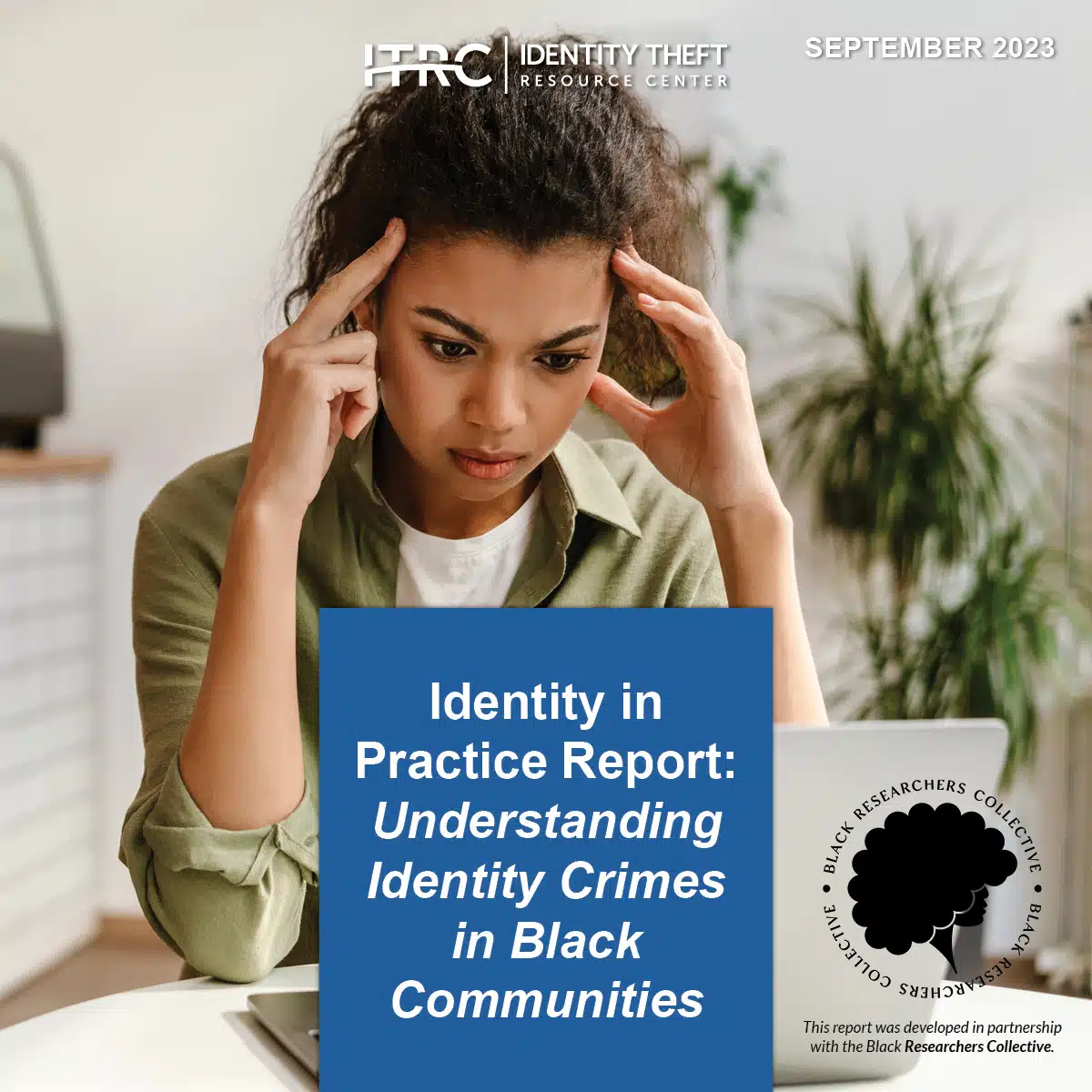ITRC Identity in Practice Report
Home Publications ITRC Identity in Practice Report

Please add your information below to download a copy of the report PDF
The Identity in Practice Report seeks to understand and examine identity crime victimization across Black communities in the United States. Highlights in the report include:
- Most participants were victimized by strangers (56 percent), but a large minority (40 percent) said they were victimized by someone they knew, with at least 13 percent being family members.
- Revictimization was also prevalent in the three cities (83 percent in Atlanta and Chicago each; 86 percent in Philadelphia) where qualitative focus groups were conducted. For those who experienced financial loss, most lost at least $500.
- Fifty-three (53) percent of participants across the focus groups expressed emotional and psychological impacts after becoming a victim, as well as challenges accessing financial accounts, securing tax returns, obtaining identity PINs and dealing with penalties for reporting identity fraud.
The findings in the report point towards the need for more culturally aware victim assistance.
About the Research
In the spring of 2023, the Black Researchers Collective (BRC) conducted six focus groups – two in each city – with people who both self-identified as Black and reported being a victim of an identity crime across three major cities in the Midwest, East Coast and the South. Across the focus groups, BRC met with a total of 55 participants, the average age of whom was 44 years old. Although the age profiles were fairly balanced across all three cities, most focus group participants (82 percent) were under the age of 55. The majority of participants who participated in the focus groups were cisgender women (71 percent), while 29 percent of participants were cisgender men. Most of the focus group participants (80 percent) had household incomes under $75,000, and over half (56 percent) made under $50,000 a year despite over half of the sample also being college-educated with degrees (53 percent). The majority of participants (71 percent) also experienced what BRC defined as compounding factors, meaning that in addition to being a victim of an identity crime, they were also experiencing one or more of the following factors while also experiencing victimization: recently justice-involved, recently homeless, recently housing insecure (moving more than two or more times in a calendar year; spend more than 35 percent of income on housing), or had at least one minor (dependent) in their household they care for.
Get ID Theft News
Stay informed with alerts, newsletters, and notifications from the Identity Theft Resource Center


